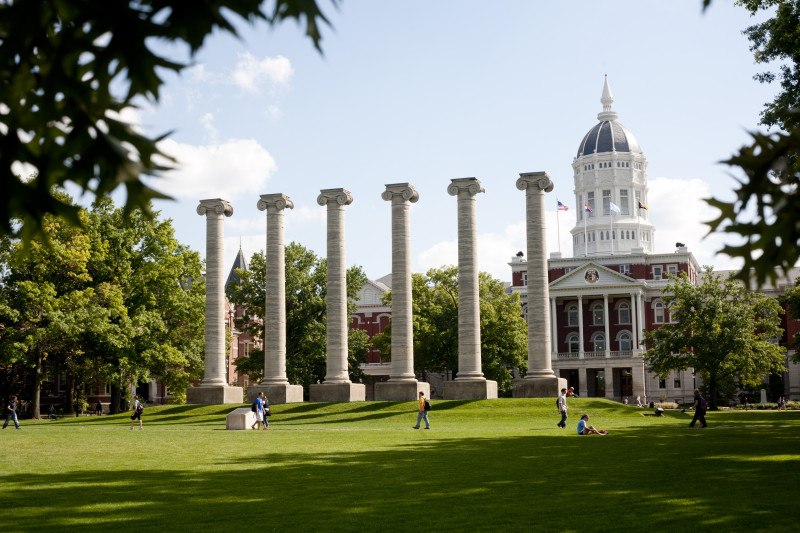COLUMBIA, Mo. – A report circulating inside the University of Missouri system administration will likely add to the turmoil embroiling the university.
The Missouri Times has learned from multiple sources that in a report created by the prestigious Association of American Universities (AAU) ranking of all 62 member institutions, the University of Missouri’s Columbia campus was ranked dead last.
The AAU is a group of highly-regarded, research-intensive universities throughout the United States and Canada, and its goal is to advance the international standing of U.S. research universities. The group focuses on lobbying issues that are important to research-intensive universities, such as funding for research, research policy issues, and graduate and undergraduate education.
The criteria used in ranking members are the percentage of faculty who are members of the National Academies, research spending, faculty awards, and faculty citations.
It is possible to be removed from the AAU by a two-thirds vote of the membership for poor rankings, and it happened as recently as 2011 when the University of Nebraska-Lincoln was removed. Nebraska’s Chancellor Harvey Perlman speculated at the time that the Big Ten would not have accepted the school without its membership in the AAU.
AAU universities in the United States award nearly one-half of all U.S. doctoral degrees, 55 percent of those in the sciences and engineering. The University of Missouri joined the AAU in 1908 eight years after the organization’s founding. A loss of membership would be a serious blow to the university’s standing.
Some sources inside the university referenced this report as justification for the administration’s attempt to fire Chancellor Bowen Loftin in a hastily called closed meeting in October, but the data in the report was collected from 2013, before Loftin was hired.
However, Loftin’s relationships within the AAU from his time at Texas A&M was one of the reasons cited as why he was hired. It was during his tenure as President of Texas A&M University that it was accepted as a member of the AAU. Loftin was at one of the two annually scheduled AAU meetings when the board meeting was called to attempt his ouster.
Loftin’s work to maintain the school’s status within the AAU has included the controversial move amongst professors to limit the number of academic waivers granted to only teach one course each semester.
Currently to be considered a full time professor at the MU campus you have to teach a minimum of two classes a semester with at least 15 students in each class. A typical class requires just under three hours per week of in class instruction.
Many professors currently receive waivers to teach fewer classes but still receive full time pay and benefits.
The report is the latest in a tumultuous seven months, which have led many to question the leadership of the university system:
- In the spring, there were national headlines reporting that the university was failing to protect the safety of female students on campus.
- Later in the spring the University of Missouri-St. Louis (UMSL) campus purchased a $1 million golf course before later in the year announcing budget cuts affecting educational services.
- In July, the university failed in an attempt to build a third hospital in Columbia when its proposal collapsed in the face of massive local opposition.
- In the late summer, Sen. Kurt Schaefer, R-Columbia, and the Senate Sanctity of Life Committee uncovered a now cancelled agreement between a Planned Parenthood doctor and the University Hospital that enabled abortions to resume at the Columbia Planned Parenthood affiliate after a three-year hiatus.
- In October, Wolfe’s convertible was briefly stopped by protesters while riding in the school’s Homecoming parade. Wolfe’s reaction was a highly criticized as callus and aloof before he apologized for his behavior and acknowledging the “racism that exists at our university.” This action set off protests on campus that have continued.
- Later in October, there was a failed attempt to fire the Columbia campus chancellor Bowen Loftin. At the meeting, African-American state Sen. Jamilah Nasheed, D-St. Louis City, was barred from speaking before the curators, who deliberated for nearly five hours in closed session before adjourning. The explanation she received was that the public was not usually allowed to comment at Curators’ meetings.
- Friday evening, Wolfe told a group of protesters outside of a fundraiser when asked if he knew what systematic oppression, “I will give you an answer, and I’m sure it will be a wrong answer.” He then said, flustered, “Systematic oppression is because you don’t believe that you have the equal opportunity for success,” and then walked away as the students screamed negative reactions.
- Saturday evening, the University of Missouri football team released a statement saying they supported the protesters and wouldn’t play until Wolfe resigned.
- Sunday, Wolfe released a statement announcing he would release a plan in April 2016 to address many of the issues the protesters raised.
If the University of Missouri-Columbia were to lose their status in the AAU it would leave only Washington University in St. Louis as the only member institution in the state. A full list can be viewed here.
An official with the University of Missouri system did not comment but also did not rule out the existence of the report.



